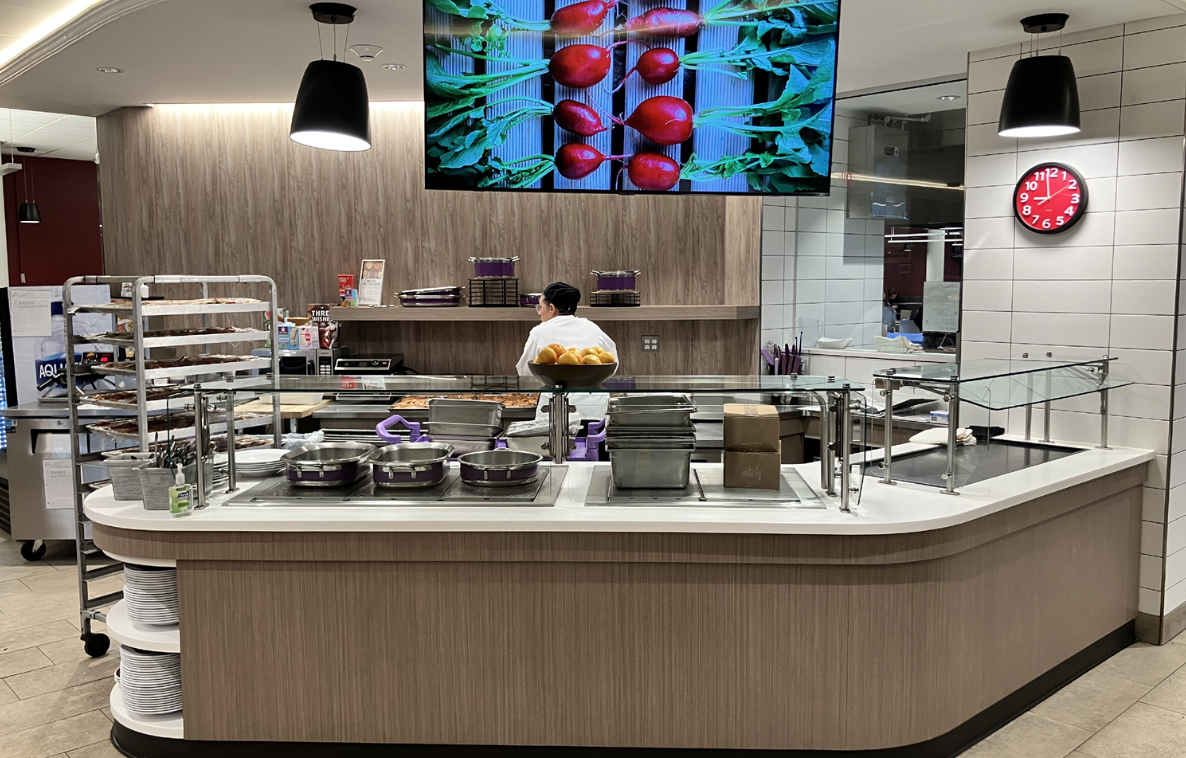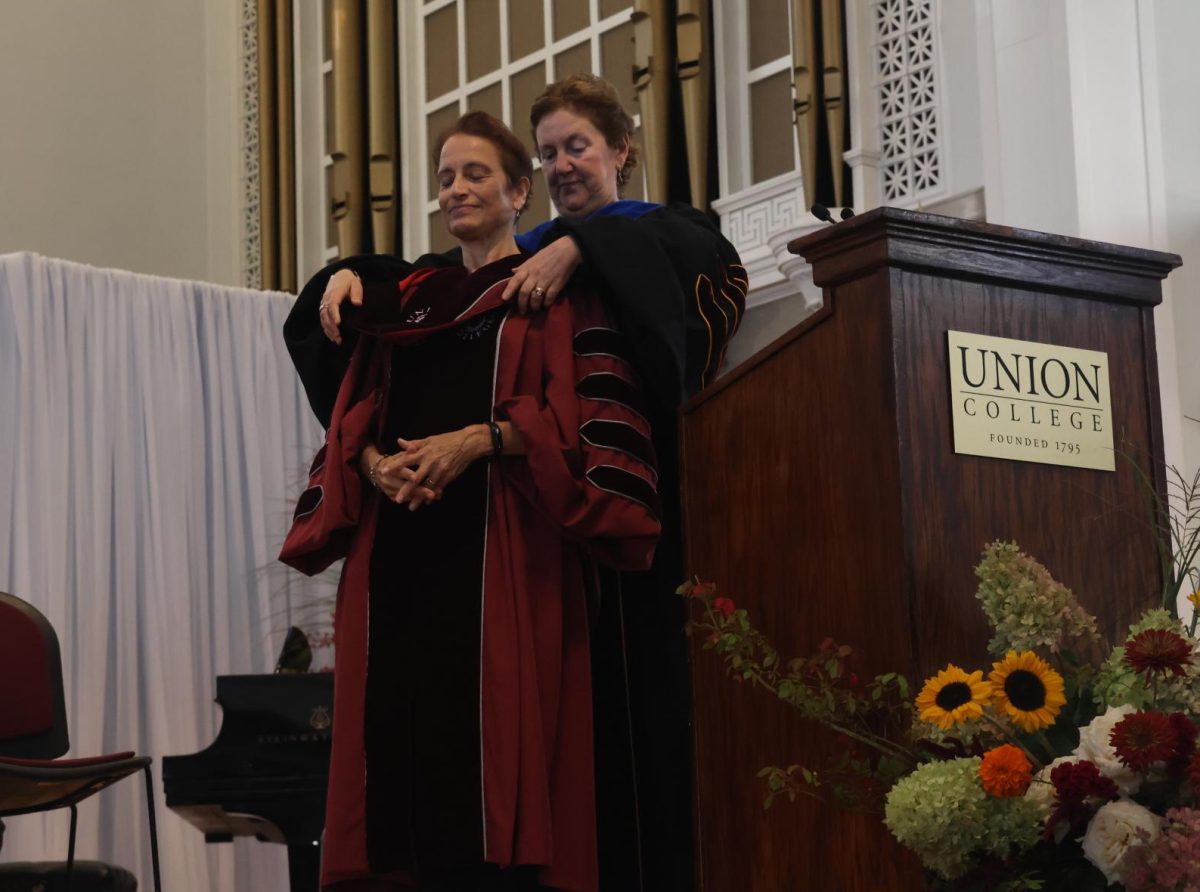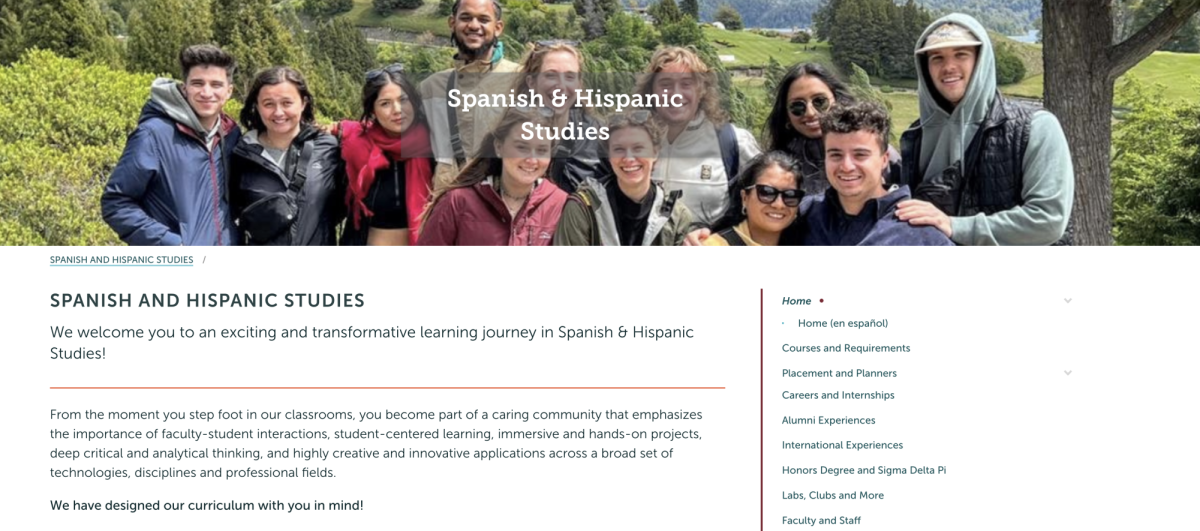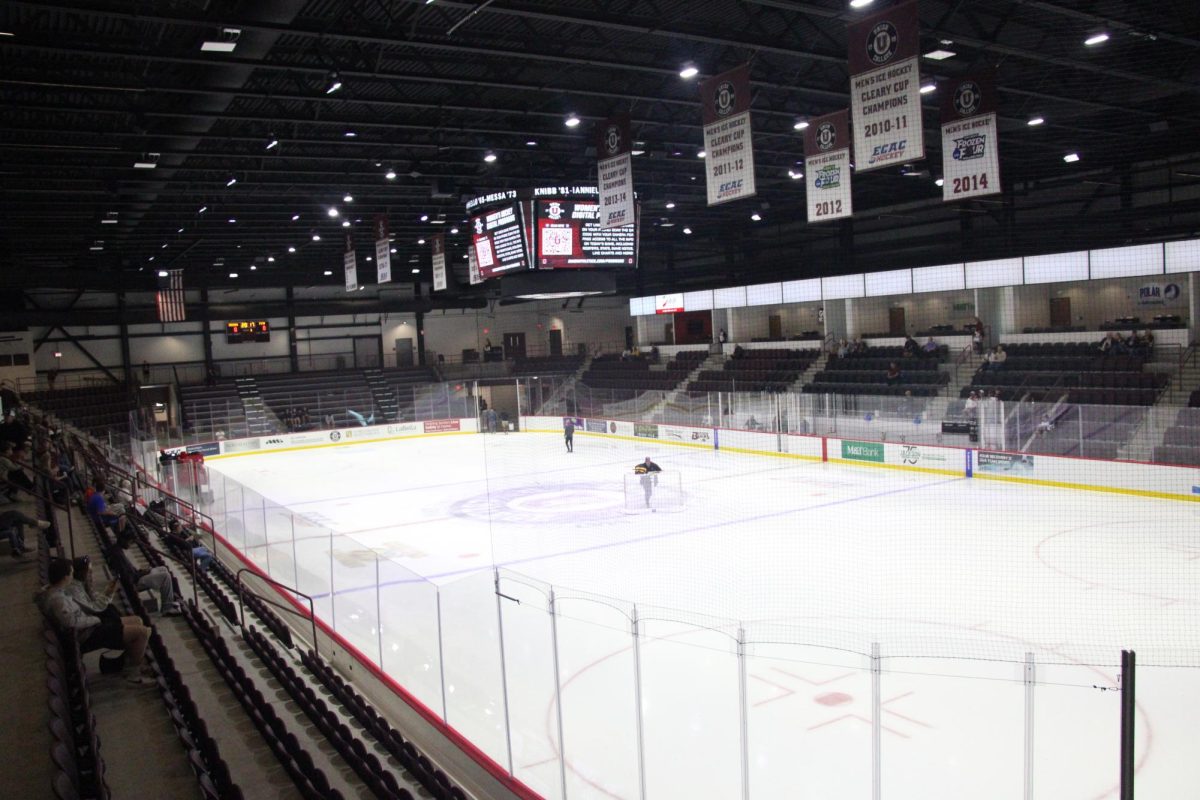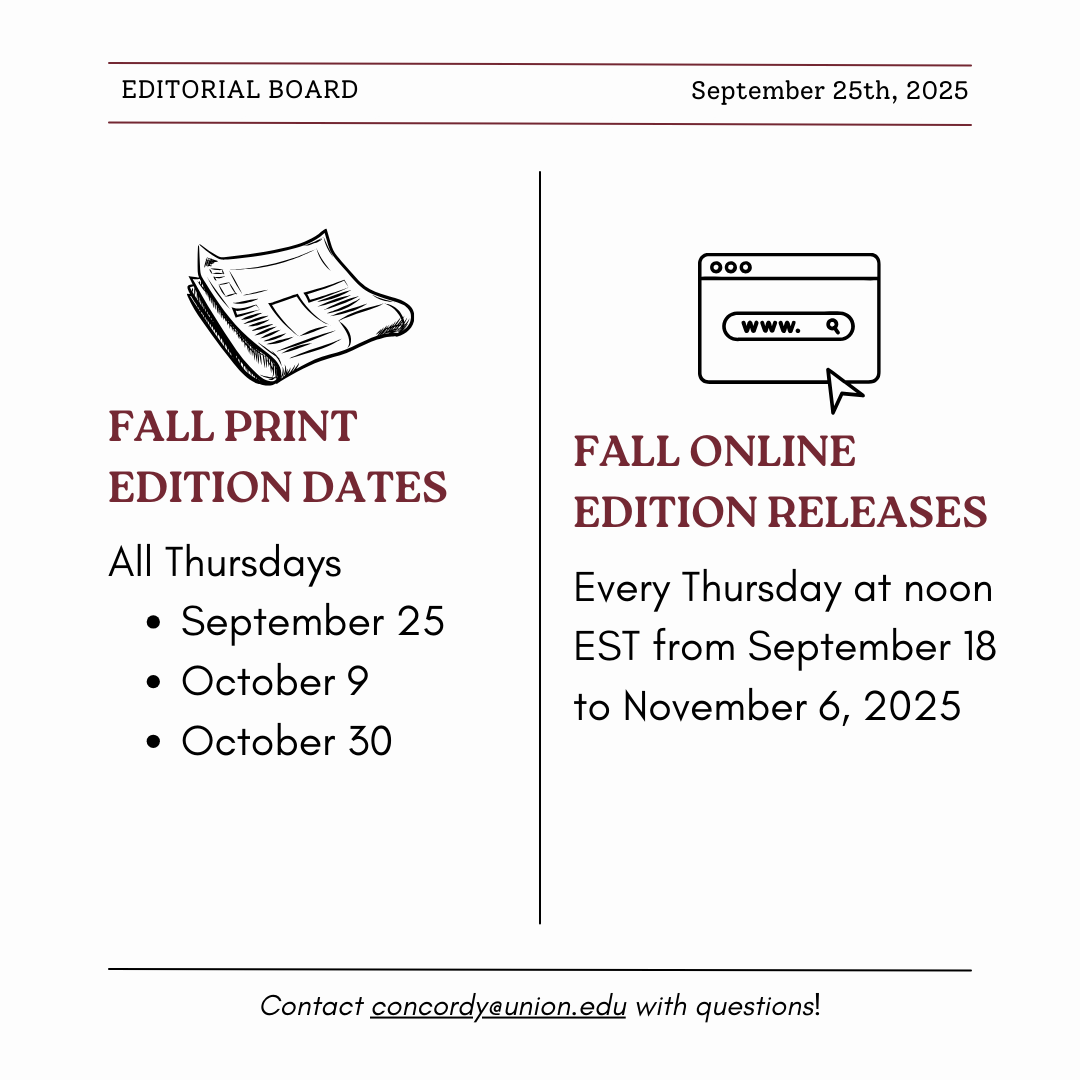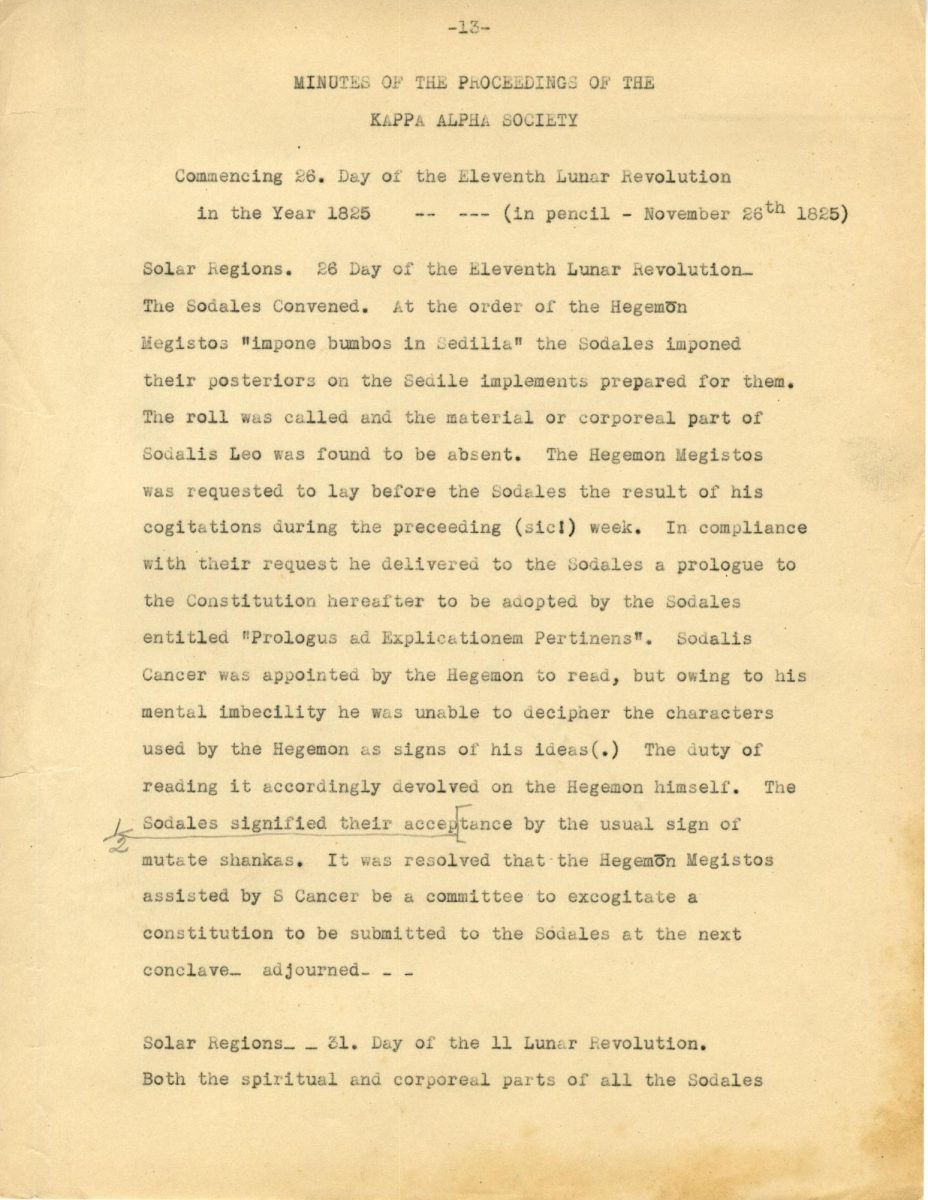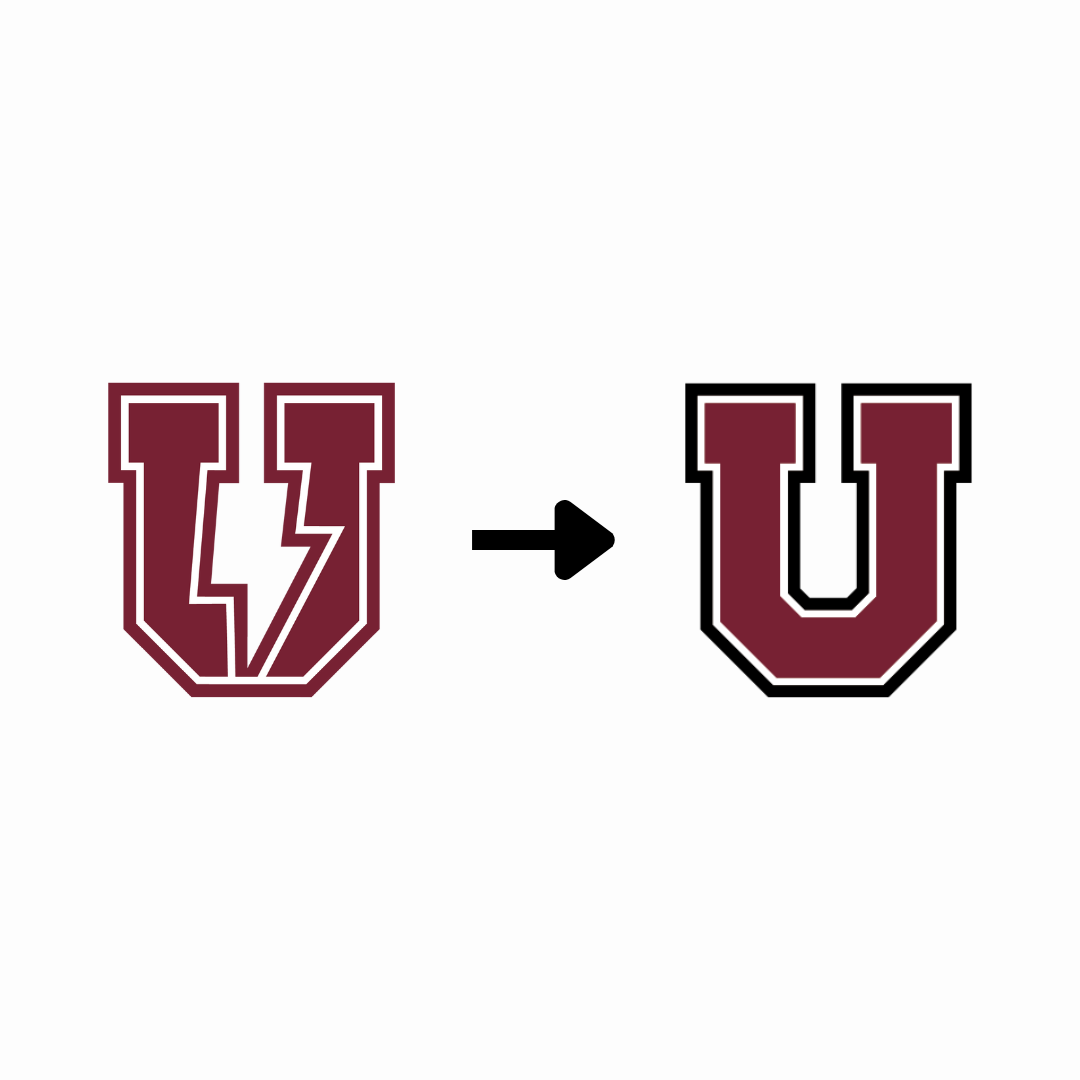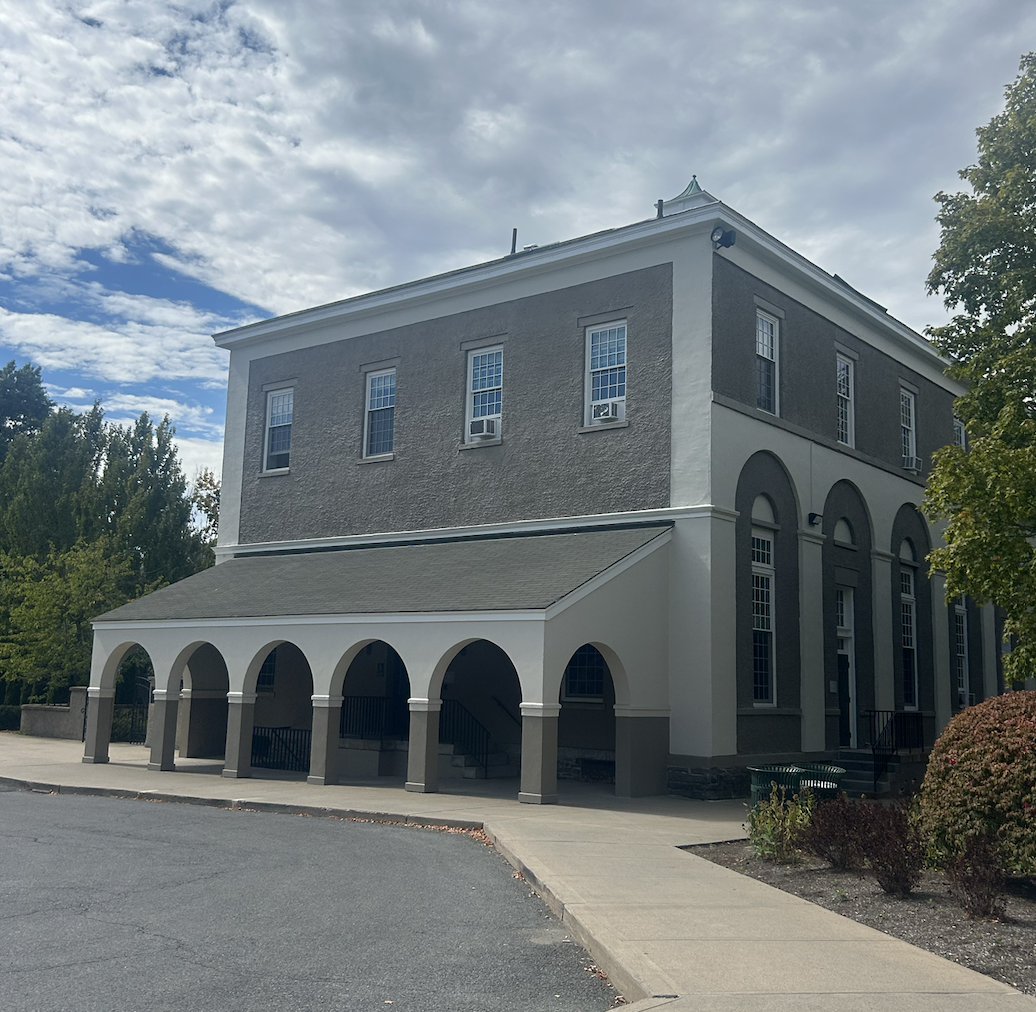With over 2,000 busy students, keeping Union fed is a massive undertaking which presents unique challenges. With how difficult it is to prepare vast quantities of nutritious and tasty food on a daily basis, it can be easy to lose sight of how hard it is for some students to stay fed; particularly students with religious or medical dietary restrictions.
To learn more about what services and accommodations Union College Dining, which is managed by the Café Bon Appétit Management company, (both of which will be referred to as Union Dining) and Union College as a whole offer to students with special dietary needs, this correspondent reached out to Pedro Fernandes, General Manager at Union Dining. Asked the ways in which Union Dining ensures compatibility with religious and medical dietary restrictions, Fernandes claimed that on top of allergen awareness trainings, allergen identification in menus, and limited cross-contact, (especially when it comes to peanuts and tree nuts) the “SimplyOASIS” station in Reamer serves “foods made without the top-9 allergens or gluten, making it a great destination for students with food allergies.”
Fernandes also suggested that those with allergies meet with their Senior Wellness Coordinator to “understand their needs and work together to establish an individualized plan” and claimed that no allergic reactions at Union have been reported since Fall of 2024 when they began operating. He also mentioned that food is prepared in “an open kitchen environment in which all major allergens are present.” To account for religious dietary restrictions, Union Dining’s ground beef is guaranteed to be halal, as is the “vast majority of the chicken”.
Kosher cuisine is offered in coordination with Union Hillel, particularly during High Holidays. However, policies on paper and their practical execution often differ. One student, a practicing Muslim with celiac disease, recounted many issues, including “Allergens or food types that they’ve claimed to label in their dining halls which have either been mislabeled or not labeled at all” as well as “meats or dishes containing butter or milk that have been labeled lactose free.”
One incident included roasted turkey with gravy served on Sept. 4, 2025 being mislabeled as vegan. Fernandes, on the subject of inaccurate menu labels, stated, “Our menus are reviewed before they’re released and then checked again during pre-service walkthroughs to ensure accuracy. We were made aware of the issue you referenced shortly after it occurred and quickly corrected our menus. If students ever discover that a menu item has been mislabeled, we ask that they please alert a chef or manager immediately.” The student also opined that Union Dining, particularly Reamer Dining Hall, “Has an interesting track record with gluten free students at Union,” being “perfectly capable of accommodating someone with a minor-moderate gluten intolerance” but not somebody with Celiac Disease.
Due to the nature of Celiac Disease as an autoimmune disorder, Reamer’s open air kitchen which actively uses flour results in some degree of cross-contamination regardless of precautions. The student described regularly eating at the dining hall– particularly from SimplyOASIS– and ending up “incredibly ill.” During winter term, the student reached out to coordinate an individual plan, but had to restart the process in the spring term when that employee left Union Dining. The student reported having their concerns dismissed, stating that the employee they were in contact with stubbornly denied that Union Dining was responsible and claimed that it was due to external factors.
While they now have a limited-access kitchen and plan to suspend their meal plan, these accommodations came after a long and painful struggle with Union Dining. The student stated, however, that they felt that Union Dining can accommodate most common allergies, and that the open-air kitchen is out of Union Dining’s control. They described being satisfied with their current accommodations, but wished that Union Dining had been more transparent and better facilitated the process of obtaining accommodations.
“My problem with Union Dining is the management. I think that all of the chefs and the people who work at Union Dining do their best and do what they can, but there’s only so much they can do. I think it’s on management and administration to admit that there’s some things they can’t do and be honest about it rather than risk the health of a student,” they state. The student also described difficulties with dining during the month of Ramadan, which is observed by fasting during daylight hours. “The sunrise was about 5:30 every morning, and the dining hall didn’t open until about 7:00. So unless you prepared your own food, you didn’t have any way to eat until 7:00, and the sun set late enough at night that you’d barely have any time to eat. And they made absolutely no changes or exceptions… I think that they gave a couple of students extra Declining (dollars) but a lot of muslim students, including myself, did not receive Declining.”
While Union Dining does a commendable job of offering accessible eating to the vast majority of its students, it is possible that some gaps may still need to be addressed.


